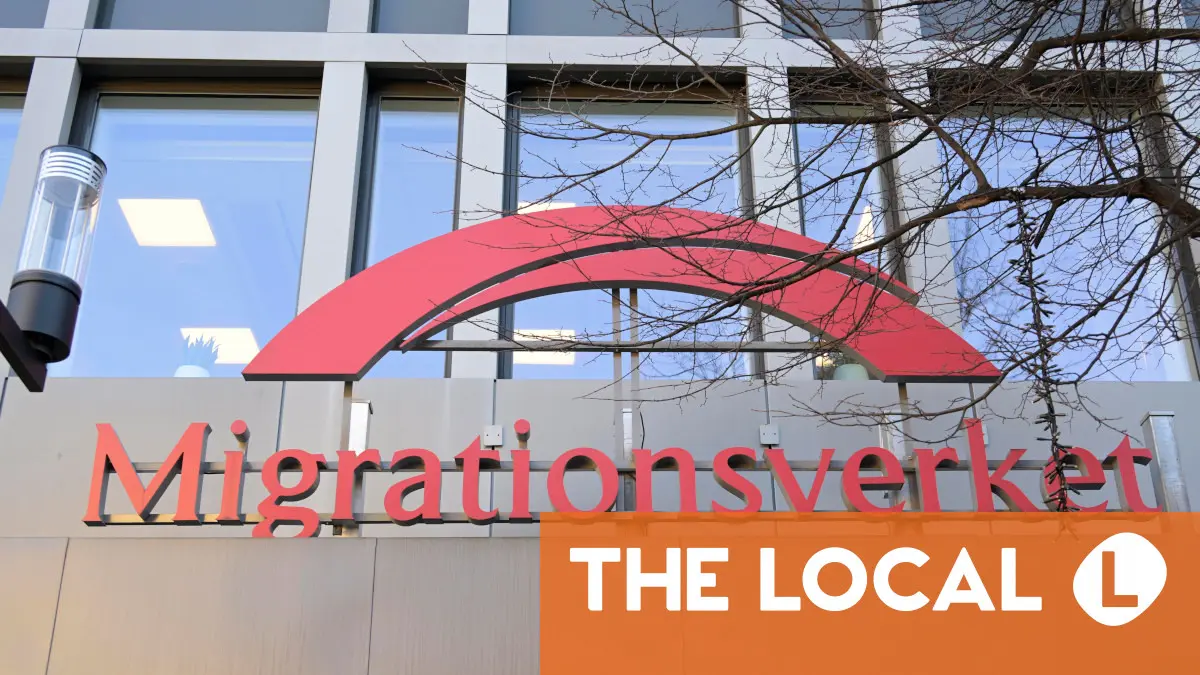No more than six Swedish citizenships were granted through naturalisation in April, after new security checks left the Migration Agency unable to approve applications.
The Migration Agency on May 15th released detailed statistics about how many citizenship cases it processed and approved in the first four months of 2025. The figures include both applications granted by the agency itself, as well as those granted on appeal in court.
They state that six so-called “naturalisation cases” were approved in April – down from 3,234 in March. These are the standard kinds of cases which make up by far the majority and are in other words the ones you think of when you think of citizenship applications.
The new statistics come a day after The Local broke the story that the Migration Agency has been unable to approve standard citizenship applications for over a month, because they haven’t yet fully set up their routines for the in-person identification required of applicants after the government ordered them to step up security checks as of April 1st.
A total of 1,120 citizenship through notification cases (an easier route available to mainly children and Nordic citizens) were approved in April, as well as 65 applications for retaining one’s citizenship (for example Swedes born abroad) and 57 so-called citizenship declarations (for people who don’t know whether or not they are citizens), which are all categories that aren’t affected by the new security checks.
The citizenship freeze affects all other nationalities, despite Migration Minister Johan Forssell’s pledge to The Local’s readers in January that work permit holders and people from countries without security risks would be unaffected by extra delays.
The Local understands that the agency has everything set up to be able to do in-person identification checks and is just waiting for an official order, which it needs for legal reasons, to be signed by the director general. Once that happens, they should be up and running in a matter of days.
Advertisement
As we have previously reported, the number of citizenship cases the Migration Agency was able to conclude fell by more than half in April compared to March as a result of there not yet being a procedure for in-person identification. Due to approvals of naturalisation cases not being processed, 60 percent of total applications were rejected. Normally, the rejection rate is around 20-30 percent.
In October 2024, the Migration Agency predicted that it would conclude 87,000 applications each year in 2025 and 2026, thanks to increased staff at the agency – a first step towards reducing the heavily criticised long waiting times for Swedish citizenship.
But the new security checks imposed by the government forced the agency in April to lower its previous estimate by more than a quarter: to 64,000 concluded citizenship cases in 2025 and 65,000 in 2026.
The security checks, which were introduced on April 1st, also involve applicants, future and present, answering a detailed set of additional background questions. The requirements for gaining citizenship have not changed.
It was initially reported there would be exceptions from the in-person identification for certain nationalities with biometric passports, but those aren’t yet ready due to the technology not yet having been resolved.
The security checks came on the orders of the government and its far-right Sweden Democrat allies, who instructed the Migration Agency to take “forceful measures” to prevent people who pose a threat to security or use a fake ID from being granted citizenship.
Advertisement
Experts had previously guessed that security checks would be tightened as a pretext of slowing down the awarding of new citizenships until the reforms planned for 2026 are in place – a slowdown strongly hinted at by the government in an opinion piece in the DN newspaper in November.
But in January, Migration Minister Johan Forssell told The Local that people who had come to Sweden on a work permit or who came from stable countries without any security concerns should not worry that their applications will be further delayed.
“I don’t think that they should be worried at all,” he said. “What we did (…) is to focus on the people who might pose a security threat to Sweden, and those people would typically be from the nations which people have fled to Sweden from and seek asylum from: That might be Syria, it might be Eritrea, it might be Somalia, Iraq, and people without any citizenship at all.”
In March, Sweden’s National Audit Office criticised both the Migration Agency and the government over “unreasonably” long processing times which allow thousands of applications to “lie dormant”.
According to the Migration Agency, 75 percent of adult applicants whose cases were concluded “recently” had to wait 23 months, but waiting times have in the past tended to vary widely, from a few weeks to many years. The full extent to how waiting times will be affected by the new security checks is not yet clear.
